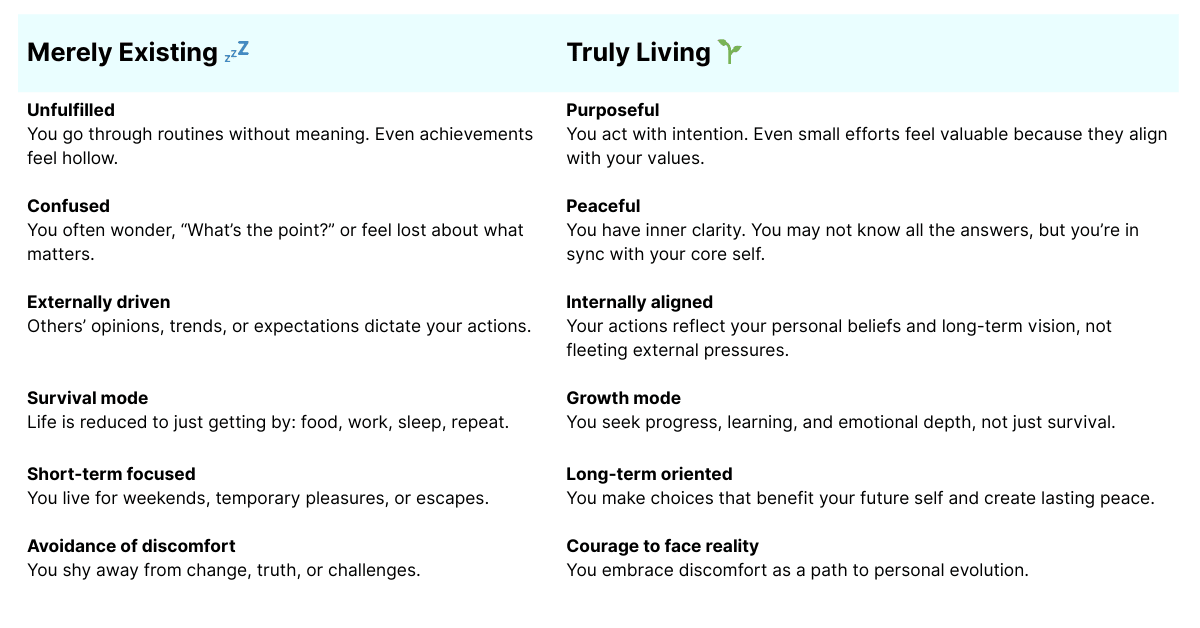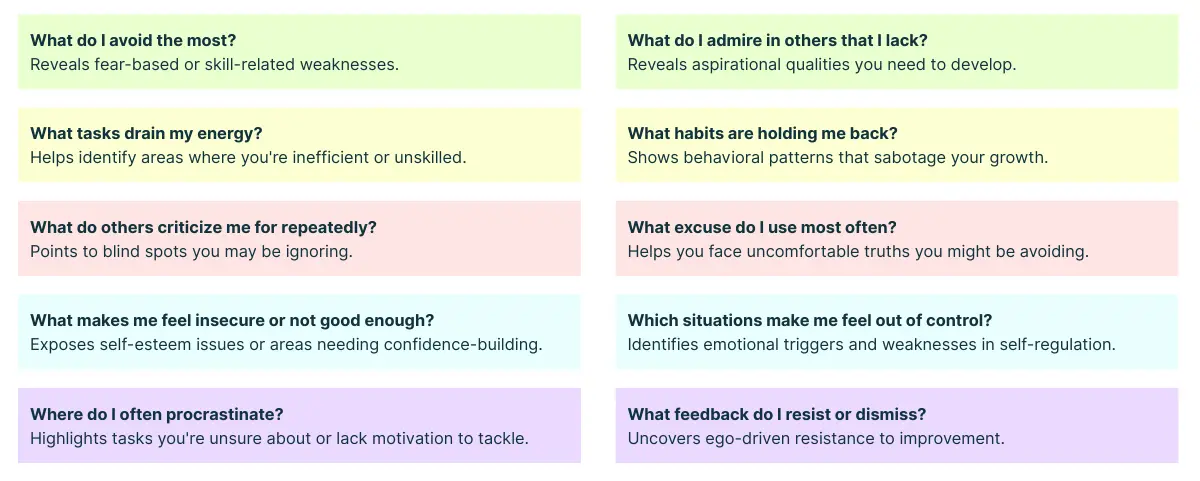What does it mean to live a good life?
Is it about success, happiness, or purpose?
These are not just casual questions. They lie at the very heart of the philosophy of life, a timeless exploration of how to exist meaningfully in a world that is ever-changing, uncertain, and sometimes difficult to understand.
I’m not here to teach you “philosophy” in the academic sense. I’m here to give you the basic understanding of a few core concepts that will allow you to analyze your own self and find the right road you have to take to find your life’s purpose.
What Is the Philosophy of Life?
The philosophy of life is the lens through which we realize or find the meaning of our existence. It’s not just a set of beliefs or principles—it’s a dynamic system of understanding that shapes how we perceive challenges, joy, loss, growth, and the inevitable mystery of our journey.
Key Questions Philosophy of Life Seeks to Answer:
- Why are we here?
- What is the nature of happiness?
- How should we deal with pain and loss?
- What makes life worth living?
Understanding the Deeper Truths of Life
We all come to understand life’s deeper truths eventually—some sooner, some later. But the problem is, most of us learn it later rather than sooner. That’s when we start to wish for a reset. That’s when we start saying:
- “I wish I had done that“
- “I wish I were a child“
- “I wish I had studied in college more“
- “I wish I had spent more time with family“
And so on.
These regrets often come to us as we start realizing what the world is and what our life is meant to be.
We’re going to explore a few concepts of philosophy right now, so you can be prepared for the future. You don’t have to be regretful of your past actions if you realize the truth right now. These are simple concepts but have a profound effect on your mindset, so try to observe them and reflect on them with a deeper understanding.
a. Everything is temporary
Nothing lasts forever. Your friends, family, job, joy, sorrow, success, failure, and even your life will end someday. Accept this right now, and you’ll start becoming stress-free. Don’t get attached to things so much that you feel pain when that thing gets taken away from you. And it will be taken away.
Always remember the mantra:
It’s not just a phrase, but a reminder that brings comfort and humility at every moment of life.
b. Suffering is part of the human condition
Suffering is inevitable. In fact, it’s the suffering that makes us who we are. It’s the suffering that helps us grow. No one escapes it. We all suffer. Sometimes more, sometimes less. As Viktor Frankl said,
To lessen the pain of suffering, we have to keep growing. We can either suffer little by little every day, or an intense burst at one time. The difference is, suffering every day, little by little, helps us grow, while the intense burst brings nothing but pain.
Accept this and choose your pain graciously. Read more about the discomfort zone to understand how you can use suffering to build your future.
c. You are not your thoughts
Many people live entirely in their minds, caught in loops of anxiety, overthinking, and emotional patterns. True awareness comes when you observe your thoughts without attaching to them.
d. No one owes you anything
Just because you’re being nice to others doesn’t mean others will be nice to you. Expectations hurt. Never expect something in return. This isn’t to discourage, but to liberate.
You might’ve heard “world isn’t fair” countless times, but it is untrue. The world isn’t unfair; it’s indifferent. Your power lies in how you respond to situations and emotions, not in waiting for justice or rewards.
When you stop expecting things and behaviors from people, you free yourself from constant disappointments and pain.
e. Your weakness is your weakness
Don’t tell your weaknesses but try to remove them. Stop telling your weaknesses to others. When you do that, you make yourself vulnerable. You never know when your friend will turn into an enemy.
This is not to encourage distrust. I’m not telling you not to share your emotions or feelings to others, but be careful who you share them with.

Embracing Change and Uncertainty
Most people seek stability, but life thrives on change. Change is necessary for us to grow, as a person, as a society, as a country, and as humanity. People who are unwilling to change cannot achieve anything.
A time will come when you’ll feel that you’ve been left behind. You’ll be disappointed with everything and everyone around you. You’ll start to lose hope in your dreams.
a. Why does change scare us
Change threatens identity, security, and control. It forces us to face the unknown. But the unknown is also where possibilities lie.
When a circumstance forces us to change, we get scared because we are about to face something we do not know or were not expecting.
b. How to Become Comfortable With Change
- Practice Detachment: Understand that nothing external is truly yours.
- Mindfulness: Be present. The future is imagination, and the past is memory.
- Reframe Uncertainty: Instead of asking “What if I fail?” ask “What if I grow?”
c. Life is cyclical
Seasons change. So do people, jobs, feelings, and ambitions. Honor your current season—even the hard ones. They too, have purpose.
Finding Purpose and Fulfillment
What’s the point of life? The answer is not singular. It’s deeply personal; everyone has a different purpose and different goals. Most often, people tend to focus on their passion to find their purpose.

a. Purpose Isn’t Found. It’s Created
Too many people waste years waiting for a divine sign or a sudden revelation about what they’re “meant to do.” But purpose isn’t a lottery ticket you stumble upon. It’s something you build—patiently—through commitment to something greater than yourself.
To begin creating it, ask yourself:
- What real problems am I willing to solve, even when it gets hard?
- What activities make me lose all sense of time and self?
And remember: purpose often doesn’t introduce itself with a grand entrance. It reveals itself quietly, often when you’re busy serving something beyond your own needs.
b. Fulfillment Is the Result of Alignment, Not Achievement
Fulfillment isn’t that dopamine rush you get from a compliment, a paycheck, or a title. It’s something deeper—an unshakable peace that comes when your actions, your values, and your inner truth are all moving in the same direction.
Ask yourself:
- Am I living a life true to my core beliefs—or am I wearing someone else’s costume?
- Do my daily habits reflect the person I say I want to become?
Fulfillment doesn’t demand that life be perfect. It demands that you be honest with yourself first.
c. Beware the Addiction to External Validation
The world will offer you endless trophies—money, applause, recognition. But all these highs are temporary. The deeper rewards in life are silent and invisible: the quiet pride you feel when you do the right thing, even when no one is watching and no one is clapping.
Chasing validation will leave you exhausted. Living by your own standard will leave you free.
Core Life Philosophies Worth Exploring
There’s no single “correct” way to live, but over the centuries, different schools of thought have mapped out powerful philosophies to help us navigate existence. Here are a few worth understanding:
a. Stoicism (Ancient Greek Philosophy)
At the heart of Stoicism is a simple, powerful idea: focus on what you can control, and let go of what you can’t.
Key Insight: Emotional strength doesn’t come from suppressing feelings. It comes from mastering your reactions to life’s inevitable hardships.
b. Buddhism (Eastern Philosophy)
Buddhism teaches that much of human suffering stems from our attachments—our clinging to things, people, outcomes.
Key Insight: By embracing the present moment and accepting life’s impermanence, you can find peace even in the face of chaos.
c. Existentialism (Modern Philosophy)
Existentialism strips life of any pre-written meaning. There’s no cosmic blueprint you must follow.
Key Insight: You are radically free to create your own meaning, but with that freedom comes the heavy responsibility of choice.
d. Taoism (Ancient Chinese Philosophy)
Taoism invites you to stop fighting life’s natural currents. Instead of forcing outcomes, you flow with them.
Key Insight: Harmony and balance are found not by trying to control everything, but by letting go and trusting the deeper order of things.
Real-Life Applications: How to use Life Philosophies to live a Good Life
a. Relationships
- Practice empathy over judgment.
- Love people for who they are, not who you want them to be.
b. Career
- Choose work that energizes you.
- Use your job to grow, not just to earn.
c. Health
- Respect your body—it houses your experience.
- Mental health is just as important as physical health.
d. Daily Living
- Create rituals: morning walks, journaling, and gratitude practices.
- Embrace solitude—it’s a mirror to your soul.
The Journey of Self-Inquiry
Living with a philosophy of life is not about having all the answers. It’s about asking the right questions:
- Who am I?
- What do I believe?
- What am I afraid of?
- What brings me peace?
Asking these questions doesn’t solve life, but it illuminates it.
Final Thoughts: Becoming the Philosopher of Your Own Life
You don’t need a philosophy degree to live with wisdom. What you need is courage—the courage to question, to change, to grow.
The world may never fully make sense. But your life can.
And that’s when life begins to feel like it’s truly yours.
Action Steps to Begin Living Your Life Philosophy
- Start a Life Journal: Write down your thoughts, fears, and beliefs.
- Identify Core Values: Choose 3-5 principles that matter most.
- Create Daily Alignment Goals: Set micro-goals that align with your values.
- Reflect Weekly: Ask yourself, “Did I live according to my truth this week?”
- Read Widely: Explore Stoicism, Buddhism, modern psychology, and spiritual texts.
Whatever philosophy resonates with you, the most important thing is to live intentionally. Ask yourself: What kind of life would I be proud to have lived?
Learn the lessons of life next that you will have to learn sooner or later. Either you can learn them right now and protect yourself from future pain, or you can learn them with future experience
Life Lessons
